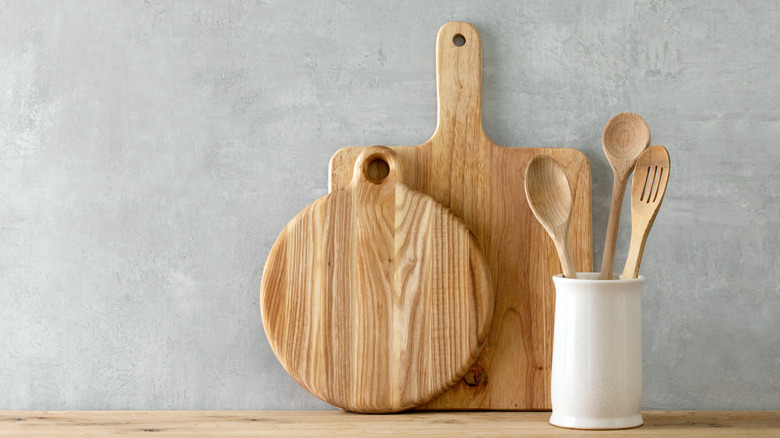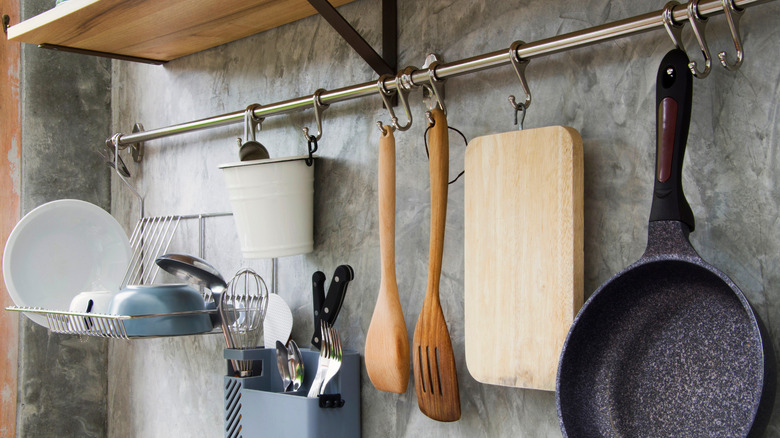The Absolute Best Way To Sanitize Your Wooden Cooking Utensils
Plastic, metal, or wooden? Cooking utensils are made in a variety of materials, and while which one you use may be partly up to personal preference, each has its pluses and minuses. When it comes to wooden utensils, there are many positive attributes, according to Fine Cooking, which include that the material is strong but also soft so that the tool won't break easily while stirring thick items, and it's also gentle enough to scrape food off the bottom of the pan without scratching it.
Chef's Pick cites wood's inability to retain heat very well, meaning that you can place a wooden spoon in a pot of boiling water and let it sit there but then still hold it. While it will be warm, it loses heat quickly. Another big reason to use a wooden utensil over other materials is most spoons, flippers, etc., made of this material are natural and aren't covered in chemicals. A shopper can usually find a wooden utensil that hasn't been varnished or coated in oil. Furthermore, these tools are inexpensive and sustainable. And while wooden utensils contain antibacterial properties, per Allrecipes, they do stain, burn, and break, but there are ways to make sure they last a long time and are safe to use.
Tricks to clean and sanitize wooden utensils
One of the best things you can do for your wooden utensil is to wash it right after use (via MasterClass). This is to help prevent the wood from getting stained and retaining food odors. Rinsing them can also prevent meal bits from adhering to the tool. MasterClass cautions against soaking the wooden utensil in water because the material could crack, and cleaning should be done with mild soap. Furthermore, avoid putting these tools in the dishwasher as the machine can damage the wood.
If a wooden utensil seems a bit too dry, a little oil can be rubbed on it, such as mineral oil, walnut oil, or linseed oil, according to Allrecipes. However, olive and vegetable oils should not be used because there is the possibility they could become rancid. Also, toss out cracked wooden tools because they pose a health risk as they might collect bacteria in the slits.
Odors can be removed from wooden utensils with lemon or baking soda, says Allrecipes. Simply rub them with a lemon wedge or a baking soda and water paste. Wooden utensils should also be sanitized, according to MasterClass, which recommends doing so with hydrogen peroxide (it will kill existing bacteria). After washing, air dry to prevent them from expanding and cracking. If you are looking for a sustainable, inexpensive, free of chemicals, and long-lasting kitchen tool, a wooden utensil might be exactly what you are looking for.

